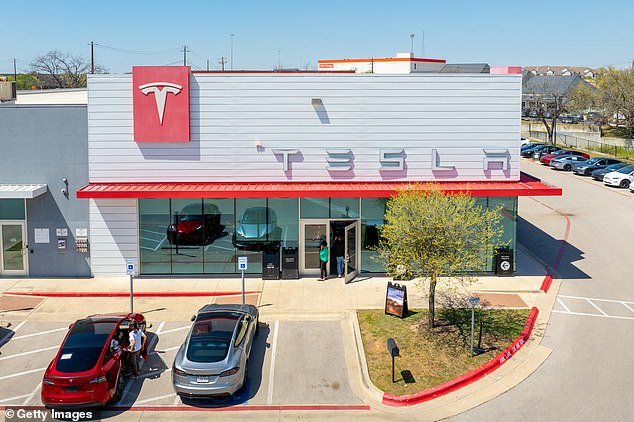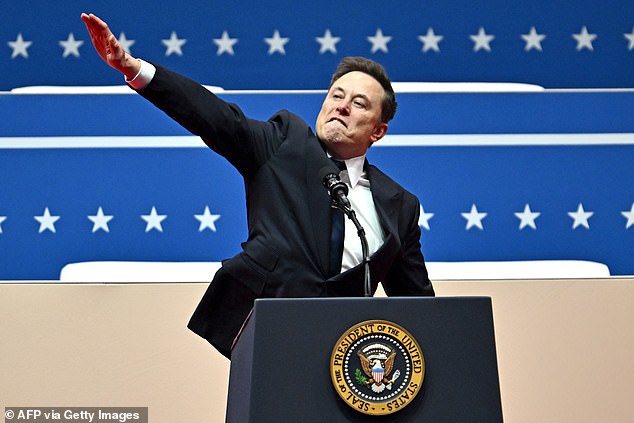Tesla Sales Drop 42% in Europe as Musk Backs Far-Right Movements
Tesla The company’s market share in Europe kept declining year-over-year in February, according to data released on Tuesday. This drop occurred even though electric vehicle registrations were increasing across the continent, marking the second consecutive month of decreased sales for the all-electric automaker.
With increasing competition and as the launch of its new Model Y mid-size SUV approaches, Elon Musk The battery-electric (BEV) division of the company has reported a 42.6% decrease in car sales across Europe up until now this year, according to figures released by the European Automobile Manufacturers Association (ACEA).
In February, Tesla held 1.8% of the overall market and 10.3% of the BEV market, which represents a decline from 2.8% and 21.6%, respectively, compared to the previous year.
It sold less than 17,000 vehicles in the European Union In contrast, this number was more than 28,000 for Britain and the European Free Trade Association countries during the same month in 2024.
Currently, Tesla is encountering several difficulties in the European market. The company offers a more limited range of vehicles that also tend to be older compared to newer, frequently less expensive electric models being introduced by both conventional car manufacturers and emerging players from China.
The company's CEO, Musk, has additionally sparked debate by seeking alliances with far-right political groups in Europe, contributing to Tesla's decline in sales.
In these markets, BEV sales increased by 26.1% compared to February 2024, whereas overall automobile sales decreased by 3.1%, as reported by the ACEA.
A document filed with the EU revealed last week that Tesla has established a fund aimed at selling carbon credits to over half a dozen car manufacturers. This move comes as these automakers strive to comply with new European CO2 emissions standards that took effect in January.


Based on estimates from 2024 data, analysts believe that Tesla's sales could sufficiently offset the emissions of other companies. However, this scenario may alter if Tesla’s sales keep declining.
The EU established these goals to boost the adoption of electric vehicles within the union. However, it is anticipated that they will approve on Tuesday a modification of these regulations, permitting a three-year average for fleet emissions instead.
Although overall new car registrations in the EU decreased by 3.4% in February, BEV sales surged by 23.7%, marking their second consecutive rise, while HEV sales climbed by 19%.
Electric cars - whether Battery Electric Vehicles (BEVs), Hybrid Electric Vehicles (HEVs), or Plug-In Hybrids (PHEVs) - made up 58.4% of total passenger vehicle registrations in the region during February, an increase from 48.2% over the previous year.
'Europe’s electric vehicle sector has had a remarkably bright start to 2025,' remarked Chris Heron, the secretary general of E-Mobility Europe, to Reuters.
We are witnessing the initial effects of manufacturers' strategies to comply with theEU's planned CO2 restrictions.
In February, among the leading car manufacturers in Europe, VW and Renault saw their sales increase by 4% and 10.8%, respectively, across the EU, UK, and EFTA nations. However, Stellantis experienced a decline of 16.2% in sales during the same period.
Despite the effect of EU tariffs on Chinese-built electric vehicles, sales at SAIC Motor increased by 26.1%, whereas they dropped by 15% at Volvo, which is owned by Geely.
The market share of brands not included in the ACEA statistics, such as BYD and other Chinese automakers, increased to 2.5% from 1.5% compared to the previous year.
In the month, total car sales in Spain increased by 11% compared to the previous year, whereas other significant markets saw decreases, with registrations dropping by 6.4% in Germany, 6.2% in Italy, and 0.7% in France.
Read more
Post a Comment for "Tesla Sales Drop 42% in Europe as Musk Backs Far-Right Movements"